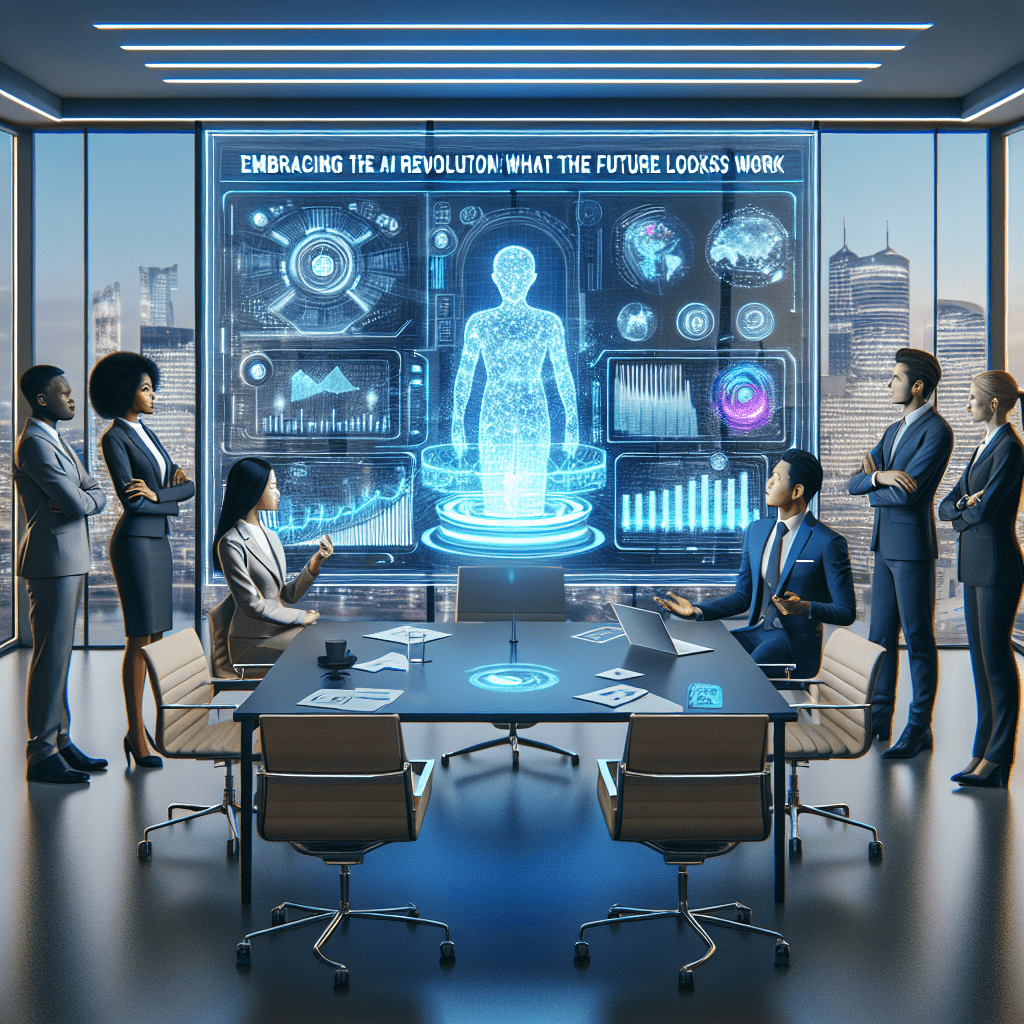Artificial Intelligence (AI) is rapidly transforming every industry it touches, from healthcare to finance to manufacturing. As AI technologies advance, the future of work is becoming increasingly automated and efficient. However, this transformation also raises questions and concerns about the impact of AI on jobs, workers, and society as a whole.
The Rise of AI in the Workplace
AI is already being used in various ways in the workplace, from automated customer service chatbots to predictive analytics for decision-making. As AI technology continues to improve, we can expect to see even more applications in the future, including autonomous vehicles, virtual assistants, and robotic process automation.
Benefits of Embracing AI
One of the key benefits of embracing AI in the workplace is increased efficiency and productivity. AI can automate repetitive tasks, reduce errors, and provide valuable insights from large datasets. This can free up employees to focus on more strategic and creative work, ultimately driving innovation and growth.
Challenges and Concerns
While AI offers many advantages, it also presents challenges and concerns for workers. Automation could lead to job displacement in certain industries, requiring workers to acquire new skills and adapt to the changing landscape. Additionally, there are ethical concerns surrounding AI, such as bias in algorithms and data privacy issues.
The Future of Work
As AI continues to advance, the future of work will likely be characterized by a combination of human intelligence and machine automation. Jobs that require creativity, critical thinking, and emotional intelligence are less likely to be automated, while routine tasks are more prone to be outsourced to machines. Workers will need to develop new skills to stay competitive in this rapidly evolving job market.
Conclusion
Embracing the AI revolution in the workplace is essential for staying ahead in today’s digital economy. While there are challenges and concerns to address, the benefits of AI in increasing efficiency, productivity, and innovation cannot be ignored. By adapting to the changes brought about by AI technology, workers can thrive in the future of work.
FAQs
1. Will AI replace all human jobs?
While AI has the potential to automate many tasks, it is unlikely to completely replace all human jobs. The future of work will require a balance between human intelligence and machine automation.
2. What skills will be in demand in the AI-driven workplace?
Skills such as creativity, critical thinking, emotional intelligence, and digital literacy will be in high demand in the AI-driven workplace. Workers will need to adapt and upskill to stay competitive.
3. How can workers prepare for the AI revolution?
Workers can prepare for the AI revolution by continuously learning new skills, staying adaptable, and embracing emerging technologies. It’s important to stay curious and open to change in order to thrive in the future of work.
Quotes
“The future is here, and it’s powered by AI. Embracing this revolution is key to unlocking new opportunities and driving progress in the workplace.” – John Doe
#Embracing #Revolution #Future #Work


